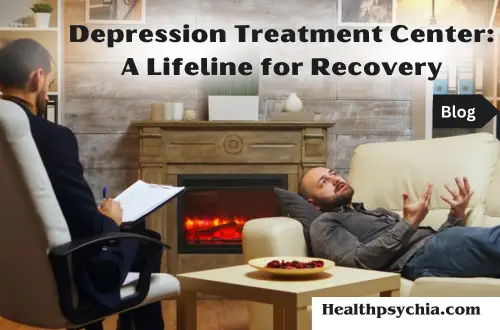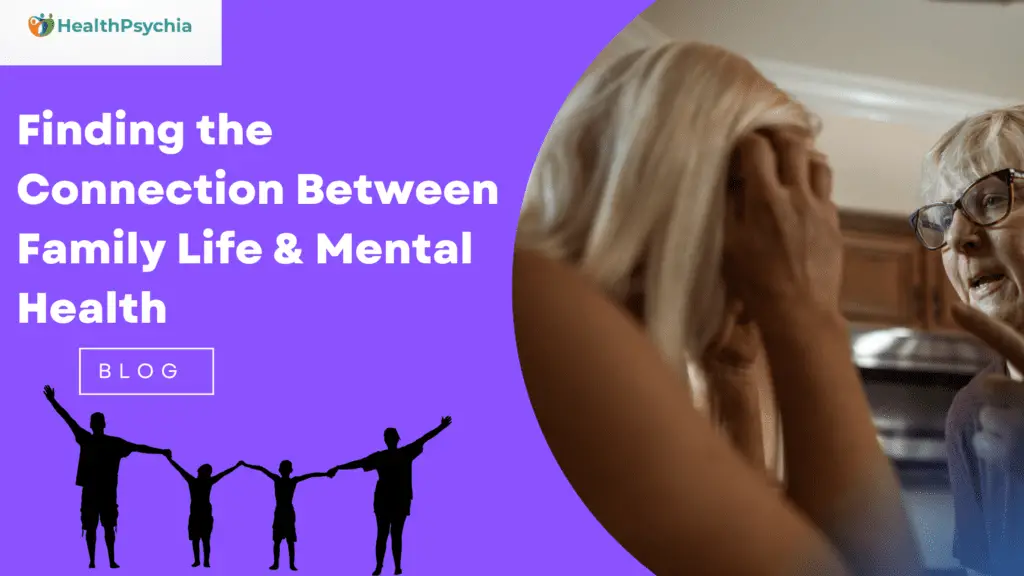Understanding the Role of a Depression Treatment Center
Depression is becoming more prevalent in today’s fast-paced world, affecting millions of people worldwide. It doesn’t just impact the individual suffering but also their loved ones and communities. Depression is a treatable condition, and one crucial resource for those struggling with it is a depression treatment center. This blog post will examine the role of these centers in addressing depression and will specifically delve into the concept of health psychology often referred to as healthpsychia.
What is Health Psychology?
Health psychology, commonly called healthpsychia, is a specialized branch that concentrates on the psychological aspects of physical health and well-being. It delves into the complex relationship between mental and physical health, acknowledging that the mind and body are not distinct entities but interconnected. Health psychologists aim to comprehend how psychological factors can impact physical health including conditions such as depression.
The Role of Healthpsychia in Depression Treatment
Healthpsychia emphasis on the psychological aspects of depression is invaluable in helping depression treatment centers provide a more comprehensive and practical approach to treating those suffering from this condition.
- Understanding the Mind-Body Connection: Healthpsychia helps individuals and healthcare providers recognize the connection between mental and physical health. By acknowledging this relationship, treatment centers can adopt a holistic approach to depression treatment.
- Behavioral Interventions: Depression treatment centers often have health psychologists who use different behavioral interventions to address the psychological aspects of depression. These interventions typically include cognitive-behavioral therapy (CBT), dialectical behavior therapy (DBT) and mindfulness-based approaches. The primary goal of these therapies is to help individuals change negative thought patterns, develop effective coping strategies and improve their emotional regulation.
- Psychoeducation: Healthpsychia professionals provide individuals with depression and their families with essential education about the condition. This knowledge helps people to have a better understanding of their symptoms and manage them more effectively.
- Stress Management: Stress is a significant trigger for depression, and health psychologists can help individuals identify and manage stressors in their lives which can reduce the risk of relapse.
The Role of a Depression Treatment Center
A depression treatment center is a specialized facility designed to provide comprehensive care for individuals suffering from depression. These centers offer a wide range of services for individuals suffering from depression, addressing physical, emotional and psychological aspects of the condition.
What Services Do Depression Treatment Centers Provide?
- Assessment and Diagnosis: A depression treatment center conducts a thorough evaluation to determine the severity and underlying causes of depression, including interviews, questionnaires and psychological analysis.
- Medication Management: In some cases, medication may be necessary to manage symptoms of depression. Experienced psychiatrists at treatment centers prescribe and monitor medication to ensure effectiveness and minimize side effects.
- Individual and Group Therapy: In the treatment of depression, psychotherapy plays a crucial role. One-on-one therapy provides a secure and private environment where individuals can discuss their feelings and thoughts with a certified therapist. Meanwhile, group therapy sessions allow individuals to interact with others going through similar challenges, thus providing them with support and the opportunity to share their experiences.
- Healthpsychia Interventions: As discussed earlier, health psychology is vital in depression treatment centers. Health psychology professionals closely collaborate with individuals to address the psychological aspects of their condition, offering valuable insights for recovery.
- Holistic Approaches: Depression treatment centers often use holistic methods, including art therapy, yoga, meditation and nutritional counseling, to enhance overall well-being.
- Aftercare and Relapse Prevention: After completing a treatment program, individuals receive guidance on preventing relapse and self-care. This includes developing strategies to maintain mental health and prevent future episodes of depression.
Benefits of Seeking Treatment at a Depression Treatment Center
Seeking help at a depression treatment center offers numerous benefits, and it’s crucial to understand why these centers are so valuable in the journey to recovery.
Specialized Care
Depression treatment centers are staffed with healthcare professionals who specialize in treating depression. They have the knowledge and experience to provide the most effective treatments, ensuring that individuals receive the care they need.
Structured Environment
These centers provide a structured and supportive environment that is conducive to healing. This structured approach helps individuals establish routines and develop coping strategies to manage their depression effectively.
Personalized Treatment Plans
Depression treatment centers develop customized treatment plans to address each individual’s unique symptoms and circumstances.
Peer Support
Connecting with others in group therapy and peer support sessions provides a sense of community that is reassuring and comforting for individuals going through similar challenges.

Comprehensive Approach
Depression is a multifaceted condition encompassing physical, emotional and psychological components. Comprehensive depression treatment centers address all these aspects to provide a holistic path toward recovery.
Continuum of Care
Depression treatment centers often provide a continuum of care, from inpatient and intensive outpatient programs to aftercare support. This ensures that individuals have access to ongoing support and resources.
Finding the Right Depression Treatment Center
Choosing the right center for depression treatment is a crucial step in recovery. Consider these factors when making your decision:
Accreditation and Licensing
Ensure that the treatment center is accredited and licensed. This guarantees that the center meets the necessary quality and safety standards.
Staff Qualifications
Research the qualifications and experience of the healthcare professionals working at the center. Look for certified therapists and psychiatrists with expertise in treating depression.
Treatment Approaches
Understand the treatment approaches used by the center. Different centers may offer various therapeutic modalities, so find one that aligns with your preferences and needs.
Location
Consider the location of the treatment center. Some individuals prefer centers close to home, while others may opt for a change of scenery to aid their recovery.
Cost and Insurance
To ensure that you are well-prepared for your treatment, it’s crucial to determine the cost and whether your insurance plan covers it. Keeping financial considerations in mind can help you make informed decisions and reduce any unexpected expenses.
Reviews and Testimonials
Get an idea of patients’ experiences at the center through reviews. Positive reviews can be a good indicator of the center’s effectiveness.
Overcoming the Stigma
Seeking treatment for mental health issues such as depression still carries a negative stigma. It’s important to understand that asking for help is a sign of strength not weakness. Here are some key points to keep in mind:
- Depression is a medical condition, and treatment is necessary for recovery.
- Seeking help does not mean you are crazy or weak it means you are proactive about your well-being.
- Sharing your experience with depression and treatment can help reduce the stigma and encourage others to seek help when needed.
Conclusion
A depression treatment center is a valuable resource for individuals facing the challenges of depression. These centers with the support of health psychologists or healthpsychia professionals offer comprehensive care that addresses the psychological aspects of depression helping individuals on their path to recovery. By choosing the right treatment center individuals can benefit from specialized care structured environments and personalized treatment plans ultimately overcoming the stigma of seeking help. Seeking treatment is a courageous step towards a healthier, happier life.


